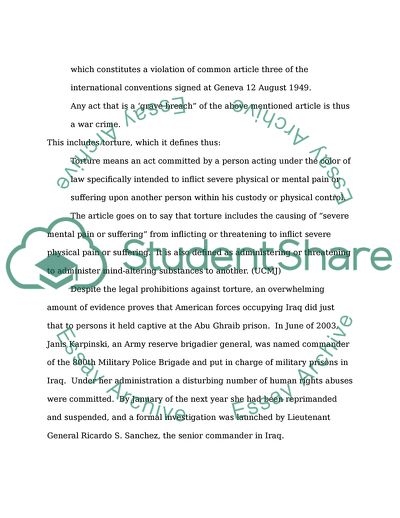Cite this document
(The Reality of Torture in the Bush Administration Term Paper, n.d.)
The Reality of Torture in the Bush Administration Term Paper. https://studentshare.org/politics/1757604-american-national-goverment
The Reality of Torture in the Bush Administration Term Paper. https://studentshare.org/politics/1757604-american-national-goverment
(The Reality of Torture in the Bush Administration Term Paper)
The Reality of Torture in the Bush Administration Term Paper. https://studentshare.org/politics/1757604-american-national-goverment.
The Reality of Torture in the Bush Administration Term Paper. https://studentshare.org/politics/1757604-american-national-goverment.
“The Reality of Torture in the Bush Administration Term Paper”. https://studentshare.org/politics/1757604-american-national-goverment.


